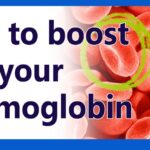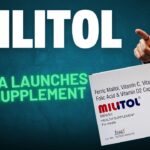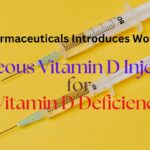Double Standards of FSSAI exposed due to arbitrary RDA Value of Methylcobalamin, which is a great influencing and active form of vitamin B12. It is also known as mecobalamin or methyl B12. It is manufactured in laboratory by reducing cyanocobalamin with sodium borohydride in alkaline solution which is followed by the addition of methyl iodide.
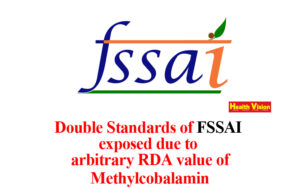

Methylcobalamin plays very important role in maintaining good health system. It is a cofactor for the cytosolic methionine synthase. It is needed for conversion of homocysteine to methionine. Methylcobalamin is the only form of vitamin B12 that can cross the blood brain barrier without biotransformation. Its methyl group stimulates serotonin secretion, a neurotransmitter which is responsible for mood enhancement and protects the brain from damage against excitatory neurotransmitters.
Several pharmaceutical experts and consultants have opposed Food Safety and Standards Authority of India’s blanket ban on methylcobalamin in Gujarat State. FSSAI notification on the ban was issued on June 11, 2019 and FSSAI also issued a list of 73 approved formulations which included methylcobalamin. The FSSAI regulation has listed two forms of vitamin B12 namely methylcobalamin and cyanocobalamin which are widely available in the market across the country.
Cyanocobalamin, a form of vitamin B12 is cheap, synthetic, mild toxic and an inactive form of B12 not absorbed well orally and is converted to methylcobalamin after 48 hours of entering into the human body system where only a small amount is converted. Methylcobalamin is a naturally found ingredient in food sources. It bypasses several phases of absorption cycle and helps reverse symptoms.
The FSSAI has been established under the Food Safety and Standards Act, 2006 which is a consolidating statute related to food safety and regulation in India. The FSSAI is headed by a non-executive chairperson, appointed by the Central government, either holding or has held the position of not below the rank of secretary to the Government of India and it is an autonomous body but Gujarat commissioner of Food and Drug Control Administration is reporting to both Drug authority and Food Authority.
So in such case there is conflict of interest as the commissioner, FDCA Gujarat can approve the product methylcobalamin under drug regulation while ban it under food regulation. Methylcobalamin is included in the approved list of Drugs Controller General of India and it is continuously manufacturing under drug regulation whereas FSSAI has put a ban on it. The Gujarat FDA office had received a letter from deputy director RCD FSSAI Delhi which is copied only to DCGI.
Two authorities i.e CDSCO and FSSAI- too complications:
This has raised a very serious concern that whether it is needed two authorities in India i.e CDSCO and FSSAI, and why a product is approved by one authority and banned by other authority. These concerns are raised by many pharmaceutical experts and consultants, but not getting response from the authorities concerned. It is contradictory that methylcobalamin is in the approved list by DCGI and it has been manufactured under drug regulation whereas FSSAI has put a blanket ban on methylcobalamin in Gujarat state only, experts conclude.
Recently many industry experts have raised concern over the blanket ban on methylcobalamin in Gujarat state. In other states of the country, there is no ban on methylcobalamin, which is a significant pharmacopoeial ingredient employed in drugs and other food supplements. Experts have pinpointed that ban on methylcobalamin warrants scrutiny in the wake of dual standards followed in such case by the regulatory authorities.
Methylcobalamin is approved across the globe:
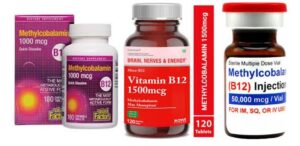

Methylcobalamin is also approved across the globe for use in nutraceutical and food supplements. Methylcobalamin is the only form of vitamin B12 that can cross the blood brain barrier without biotransformation. Its methyl group stimulates serotonin secretion, a neuro-transmitter, which is responsible for mood enhancement and protects the brain from damage against excitatory neurotransmitters.
FSSAI in its Food Safety and Standards (Health Supplements, Nutraceuticals, Food for special Dietary use, Food for special medical purpose, Functional food and novel food regulation 2016) has approved only cynocobalamin and hydroxycobalamin. The cynocobalamin, which when enters into the human body system leaves the cynide group and take methyl group from the human body to form methylcobalamin as methylcobalamin is the active form of vitamin B12 in the human body. On the other hand Methylcobalamin is approved across the globe in nutraceutical and food use. In a draft guideline issued in 2017 which is also considered as extension of regulation 2016, FSSAI added the word derivatives of vitamins to the approved list.
Methylcobalamin was introduced to the medical profession by the pharmaceutical market as it is the active metabolite of cyanocobalamin and is also an active form of vitamin cyanocobalamin. It plays very important role in to maintain good health system. Dietary cobalamin deficiency causes very serious health issues. Recent many research reports shown that methylcobalamin significantly improves visual accommodation, while cyanocobalamin appears to be ineffective.
Cyanocobalamin takes a lot of effort to reduce it to the active form; hence cyanocobalamin absorption varies greatly between individuals. Methylcobalamin is better utilized and is direct active form and it is a cofactor for the cytosolic methionine synthase. It is needed for the function of the folate-dependent enzyme and methionine synthase. This enzyme is required for the synthesis of methionine from homocysteine. Methionine in turn is needed for the synthesis of S-adenosylmethionine, a methyl group donor employed in several biological methylation reactions, including the methylation of a number of sites within DNA, RNA, and proteins.
Inadequate function of methionine synthase can lead to an accumulation of homocysteine, which has been associated with increased risk of cardiovascular and neuropsychiatric disorders. Methylcobalamin due to its high plasma protein binding capacity is accumulated and retained in the body much better than cyanocobalamin therefore the retention time is more. In any form, methylcobalamin has higher bioavailability than cyanocobalamin. It is so efficient that even orally it was found effective in pernicious anemia – a disease with deficiency of red blood cells.
Methylcobalamin a natural form of vitamin B12:
Methylcobalamin is a naturally occurring form of vitamin B12 which can be obtained through supplements, as well as food sources and it is the most important vitamin in the group and one of the two active and natural forms of B12. It helps in reducing homocysteine concentrations and generates S-adenosyl methionine, which is the most significant methyl donor in human body, and supplying methyl groups for critical chemical reactions to help maintain health system. Methylcobalamin shows its greatest utility with people suffering from acute or chronic degenerative neurological symptoms, here it is considered as the only promising treatment available. It bypasses several potential issues in the absorption cycle and helps relieve or completely reverse symptoms.


Nutritional inadequacies, enzyme defects, and pathological changes to tissues can all contribute to a reduced ability of the body to accomplish the synthesis of the active forms of vitamin B12 from cyanocobalamin. Commercial cyanocobalamin exists because after creating hydroxocobalamin (from bacteria), some cobalamins bind to cyanide during the charcoal filtration process. That is what they use to make the cyanocobalamin. Cyanocobalamin is a form of vitamin B12 and is considered to be a cheap, synthetic, mild toxic and an inactive form of B12. It consists of a cyanide donor in its chemical structure and is the most commonly used commercial preparation of vitamin B12 used.
It is considered as the most stable form, because of the cyanide molecule present in the structure has the great attraction to the cobalamin and protects it from extreme conditions like high temperatures. It is not absorbed well orally and requires methyl groups to detoxify it. The molecule that is attached to the cobalamin is known as a donor. The two most common donors in the available supplements are cyanide (making cyanocobalamin B12, or cyano B12), and methyl (making methylcobalamin B12, or methyl B12). When cyanocobalamin enters in to human body, it is converted to either methylcobalamin or adenosylcobalamin, these are the two active forms of vitamin B12 in mankind.
When cyanocobalamin is absorbed, it converts to hydroxocobalamin (which means discarding of the cyanide in the process) and then to methylcobalamin and adenosylcobalamin. When taken through oral route, absorption of this form is enormously reduced in case of any gastric acid problems. Besides, cyanocobalmin takes more than 48 hours to eventually convert to usable and active component methylcobalamin, and even then also only a small amount is converted. During this conversion it requires the interaction of possibly depletion of glutathione and other agents.
Manufacturing companies of methylcobalamin continue their production by considering it as a derivative of Methylcobalamin. In June 2019, the manufacturers of Gujarat are at stake when a letter was issued by FDA commissioner, Gujarat stating ban on Methylcobalamin. Such action has not yet initiated in other states therefore the products are continued to manufacture.
Beneficial actions
The recent many laboratory and clinical studies have shown that methylcobalamin has following beneficial actions: Nerve protection through healthy myelin synthesis; Promotes regeneration of injured nerves; Analgesic action: Relieves nerve pain associated with nerve degeneration, nerve compression, nerve inflammation; and Anti-oxidant action. Methylcobalamin has excellent tolerability, whether given orally or parenterally and many laboratory, research and clinical studies using doses as high as 25-50 mg, given twice weekly, have shown that Methylcobalamin therapy is free from any serious side effects.
Methylcobalamin therapy
Methylcobalamin therapy has been found very useful in prevention as well as treatment of vitamin B12 deficiency. Recent many laboratory and clinical studies have demonstrated efficacy of methylcobalamin in the treatment of following disorders: Diabetic peripheral neuropathy; Chronic low back pain; Radicular pain like sciatica; Carpal tunnel syndrome; Post-herpetic neuralgia; Trigeminal neuralgia; Bell’s palsy and Amyotrophic lateral sclerosis.


Dr Sanjay Agrawal
Leading Pharmaceutical Consultant
Editor-in Chief of IJMToday




